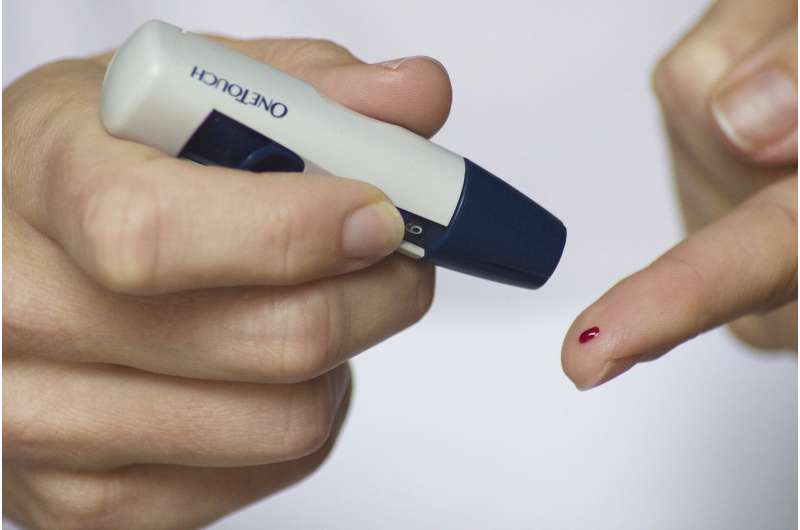High lipoprotein(a) levels in type 1 diabetes linked to cardiovascular disease

High blood levels of the lipid lipoprotein(a) in people with type 1 diabetes add to the already elevated risk of developing cardiovascular disease, researchers from Karolinska Institutet in Sweden report in a paper published in the prestigious journal Diabetes Care. Lipoprotein(a) levels should therefore be measured in patients with type 1 diabetes and form part of the total risk assessment, say the researchers.
"There is currently no readily available treatment for high lipoprotein(a) levels, but the treatment of all other risk factors for cardiovascular disease should be optimised for patients with type 1 diabetes and high levels of lipoprotein(a)," says the study's lead author Karin Littmann, Ph.D. student at the Department of Laboratory Medicine at Karolinska Institutet.
As a consequence of their disease, patients with type 1 diabetes run a higher risk of developing cardiovascular disease. Diabetes and high blood-sugar levels can also eventually cause the leakage of proteins into the urine, reduced kidney function, impaired circulation and retinal damage, leading to impaired vision.
Lipoprotein(a) is a type of blood fat, the levels of which are determined mostly by hereditary factors rather than diet or lifestyle, like other blood lipids. Previous research has shown that high levels of lipoprotein(a) entail a higher risk of cardiovascular diseases, such as myocardial infarction, stroke and calcified aortic valve disease. However, it is not fully known how lipoprotein(a) influences the risk of cardiovascular disease and related complications in patients with type 1 diabetes. It is also not known if there is any connection between lipoprotein(a) levels and high blood-sugar levels in this patient group.
For the present study, the researchers examined 1,860 patients with type 1 diabetes, and gathered data from medical records at Karolinska University Hospital on their lipoprotein(a) and blood-sugar levels, and on the incidence of cardiovascular disease and related complications.
Patients with type 1 diabetes and high lipoprotein(a) levels had a 50 per cent higher risk of developing some form of cardiovascular disease, a 70 per cent higher risk of coronary artery disease and a 100 per cent higher risk of calcified aortic valve disease, than patients with type 1 diabetes and low lipoprotein(a) levels. They also had a 70 per cent higher risk of protein leakage into the urine, which is a sign of reduced kidney function. Patients with high blood glucose (HbA1c) values had higher lipoprotein(a) levels than patients with low blood glucose values.
"Our conclusion is that high levels of lipoprotein(a) in patients with type 1 diabetes add to the already elevated risk of developing cardiovascular disease," says Dr. Littmann. "The levels of these blood lipids should therefore be measured and should form part of the total risk assessment."
More information: Karin Littmann et al. The association of lipoprotein(a) plasma levels with prevalence of cardiovascular disease and metabolic control status in patients with type 1 diabetes mellitus. Diabetes Care, online 18 December 2019, DOI: 10.2337/DC19-1398.
















